You just dropped the raw chicken you were preparing for dinner.
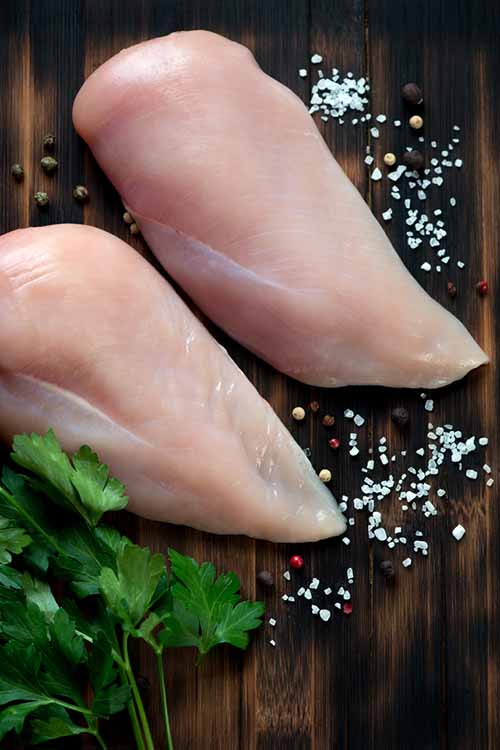
It’s now just sitting there on the linoleum as you stare at it in shock and humiliation.
You swear you heard that headless bird laughing at you…
What were you supposed to do? Catch the thing?

Look, you don’t need to explain yourself. We completely understand!
It’s wet. It’s slippery. And, quite honestly, it’s kind of gross.
But this isn’t a complete fail.
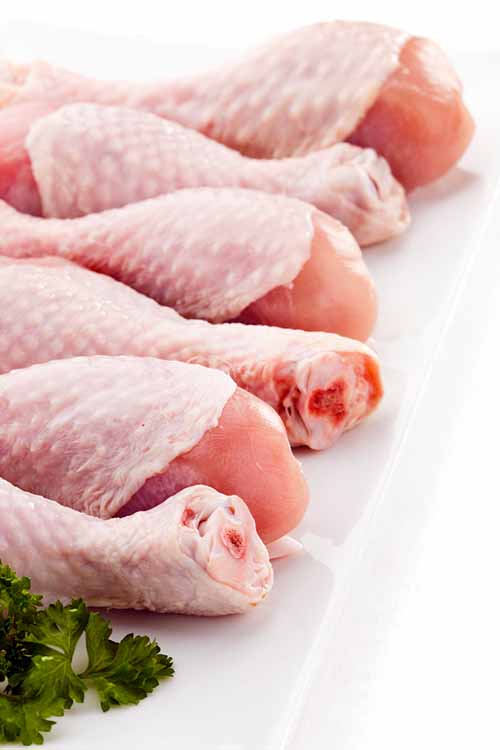
It doesn’t matter if you were prepping wings, crispy tenders, breasts, or an entire bird – Foodal has the solution ready for you, whatever you’ve dropped.
We’ll also provide some tips to prevent any more slippery accidents in the future.
Keep reading for instructions on how to easily overcome this small (in the grand scheme of things) scenario.

1. Stay Clean!
As a reminder to all cooks, it is of the greatest importance to apply sanitary cleaning practices while handling raw poultry.
Uncooked chicken is a potentially harmful food product, commonly linked with the bacteria called salmonella.
When a contaminated product is ingested, it may result in the illness known as salmonellosis. Symptoms include diarrhea, vomiting, and fever.
Keep your kitchen (and yourself!) safe from bacterial harm by minimizing any bare-hand contact with other people, things, and ready-to-eat food when you handle raw items.
And remember to immediately clean your hands, utensils, cutting boards, and any kitchen areas that were in contact with raw items (including the sink).
With cleanliness in mind, let’s deal with the bird that hit on the floor!
2. Pick It Up… Now!
As soon as it falls on the ground, pick it up immediately. You want to react as quickly as possible to minimize any bacterial cross-contamination.
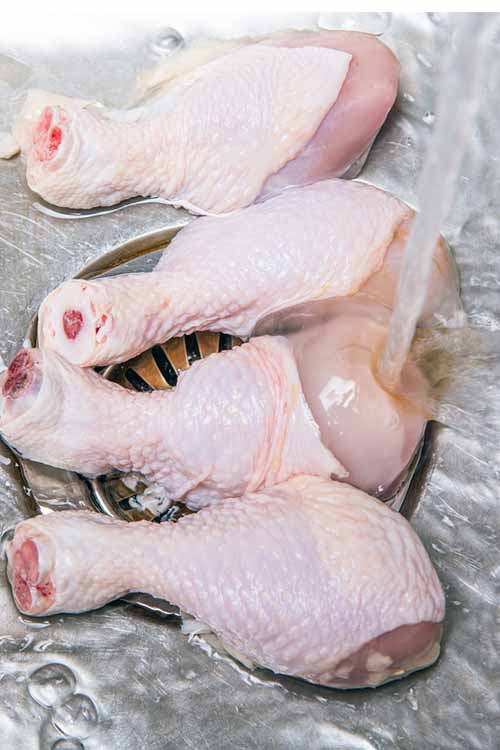
We recommend using a separate plate to hold any of the pieces that fell to the floor.
This is particularly important if you are aren’t working with a whole bird, and if you only dropped a few wings or a breast.
You want to separate them from those that are still safe on the countertop. Again, your goal here is to reduce the transfer of more bacteria.
3. Rinse and Dry
Thoroughly rinse the dropped items in cold water. This step is crucial to remove any physical contaminants from your kitchen floor.
Avoid the urge to apply soap or detergent to the poultry as you are cleaning it. The skin and meat will absorb the harmful chemicals from these cleaning solutions, and they are not food safe.
Even if you use a product that’s nontoxic, this isn’t something that you want to risk adding to your cooking.
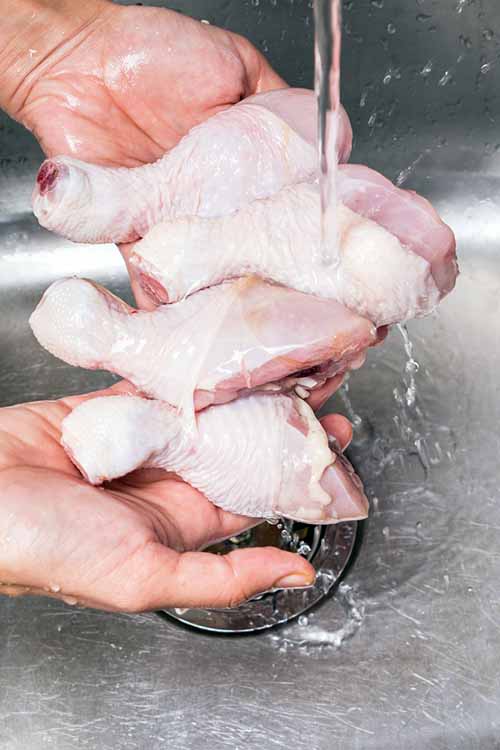
The chicken only needs to be rinsed with cold water.
Place on a clean plate or cutting board next, and pat completely dry with paper towels.
Do not return it to the platter you originally placed it on when you removed it from the ground, because this is dirty now! Place that plate in your dishwasher right away, or set it aside with your other dirty dishes and utensils.
4. Don’t Forget the Floor!
Once you have finished cleaning and drying the chicken, clean the floor right away. Especially if you have children or pets playing in the vicinity of the kitchen, you do not want their little hands or feet to pick up any bacteria that could quickly spread throughout the house.
Disinfect the contaminated area with a sanitizing cleaning solution, being sure to thoroughly scrub, wash, and dry it.
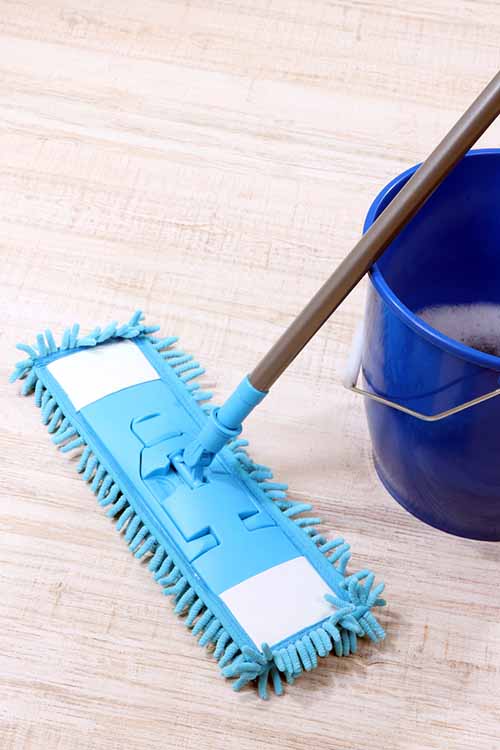
Not a fan of store-bought chemical treatments? Read more about lemon’s cleaning power for an all-natural antibacterial cleaning method!
5. It’s Safe to Cook Now… Right?
Yes! The chicken is now clean and safe to cook.
But if you still need a little more convincing…
Chicken should be cooked to an internal temperature of at least 165°F. You can get an accurate reading by using a meat thermometer.
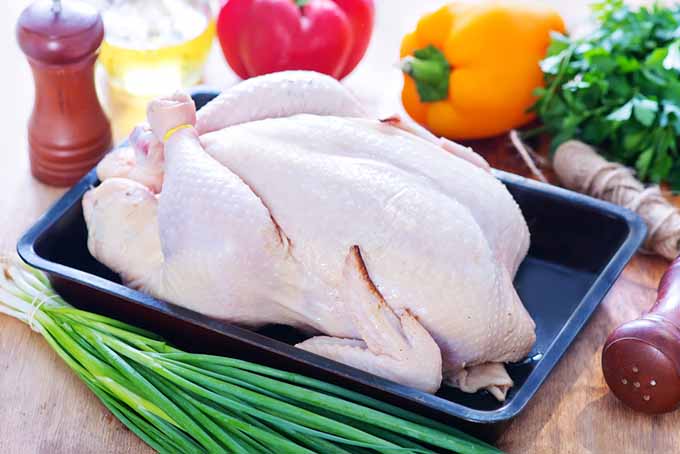
This high temperature ensures that the meat is cooked thoroughly enough to destroy harmful bacteria that may be present in the raw meat.
Microbes such as campylobacter that may be picked up on your kitchen floor, usually less of a threat than the salmonella found in raw poultry (but not 100% of the time), will also be destroyed as a result of the cooking process.
And since you acted quickly by immediately picking it up and rinsing it, you kept bacterial growth to a bare minimum!
Prevention Tips
We also have a couple preventative measures to offer, which you can take in order to decrease the chance of another dropped meal.
First, remove any residual sliminess on the skin before you start your prep. Blot with paper towels, or given your chicken a quick rinse and then dry with paper toweling before starting your prep.
This will definitely help you to more easily grip the meat, with no slippage.
Do keep in mind, however, that the USDA recommends that we not wash our raw chicken. Though it will help as a quick fix for slipperiness or dust and dirt picked up from the floor, it also raises the odds that you’ll be spreading bacteria throughout your kitchen.
Think about it – the sink will have to be cleaned, particularly thoroughly since odds are that you’ve touched the faucet with those raw chicken hands, and it’s easy to contaminate your floors with a few drips or dribbles.
So, we say you should use this piece of advice at your own discretion.
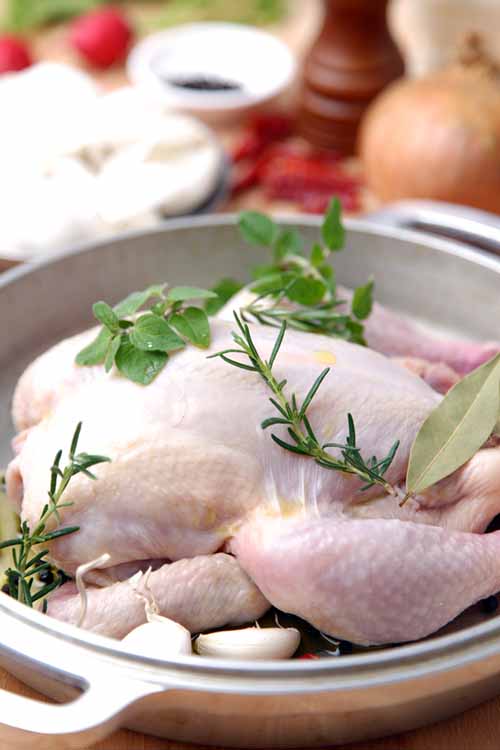
Second, if you are roasting or baking your poultry, place it in your roasting dish or pan before you start seasoning.
As soon as you start rubbing the meat with oil or butter, you are creating another potentially slippery disaster, since you still need to transfer the bird from plate to roasting pan.
If it is already in the pan you will be using for roasting, you eliminate the risk of another plummet to the floor.
Chicken for Dinner Tonight?
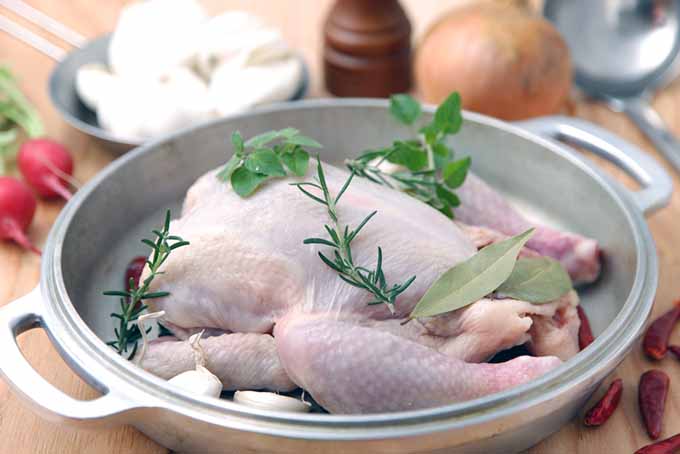
We hope you take all of our advice into consideration the next time you are preparing poultry.
If you are making a beautifully roasted whole chicken or wings like our spicy Moroccan lemon wings or Italian-style Parmesan and garlic wings, stay clean, safe, and slip-free! With cleanliness in mind, dinner really can be saved (and kitchen accidents can sometimes even be prevented).
Do you have your own slippery chicken conundrums? How did you manage the situation? Share your personal stories and learning experiences in the comments below!
Photo credit: Shutterstock.
About Nikki Cervone
Nikki Cervone is an ACS Certified Cheese Professional and cheesemonger living in Pittsburgh. Nikki holds an AAS in baking/pastry from Westmoreland County Community College, a BA in Communications from Duquesne University, and an MLA in Gastronomy from Boston University. When she's not nibbling on her favorite cheeses or testing a batch of cupcakes, Nikki enjoys a healthy dose of yoga, wine, hiking, singing in the shower, and chocolate. Lots of chocolate.




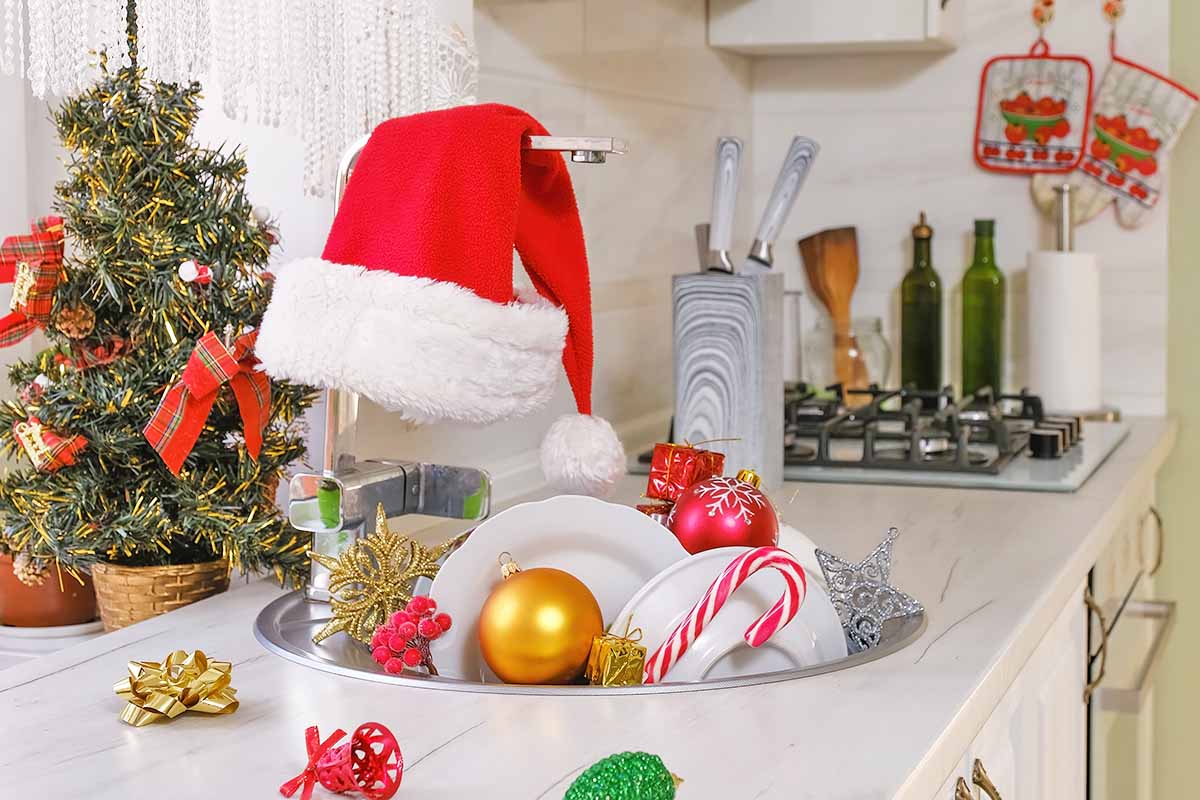
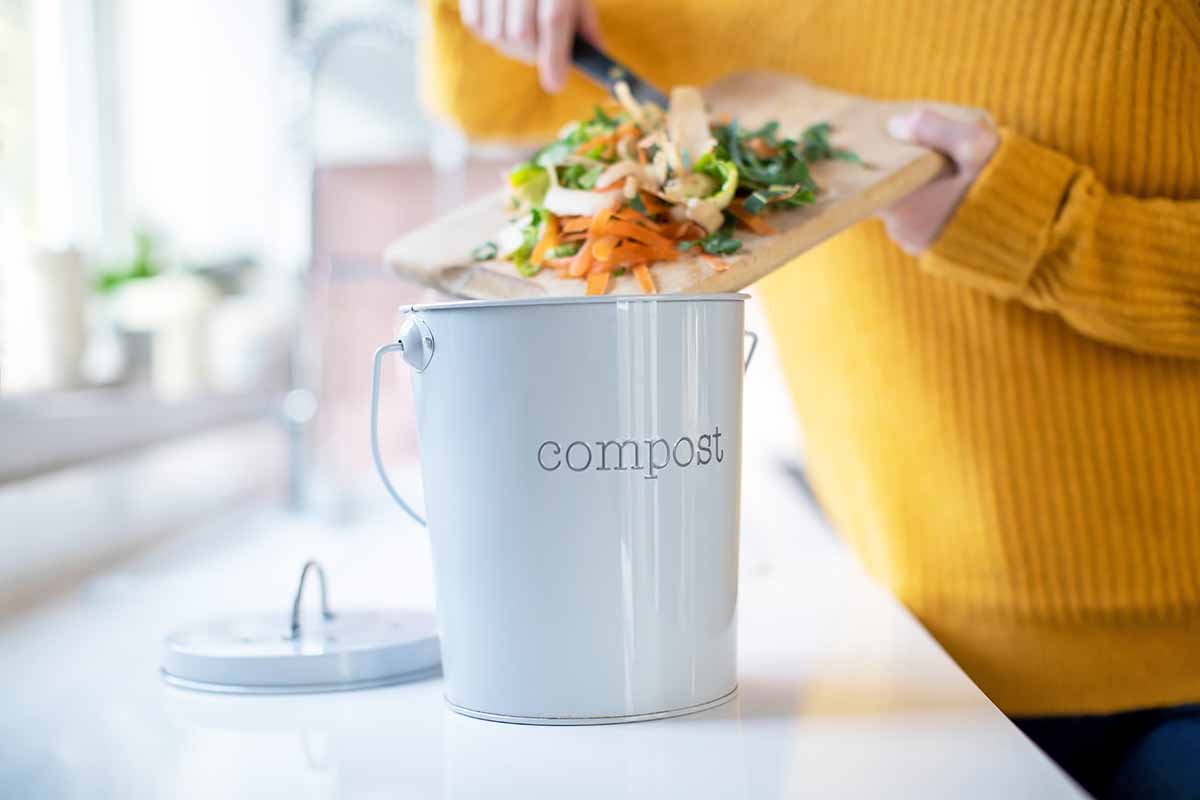
I can’t say that’s ever happened to me, but it’s great to learn all these handy tips about what to do to in case that ever happens and also how to avoid such accidents in the future. Thanks for a very informative and entertaining article.
On a side note, I will have to do another read-through on the lemon as a cleanser article. Oh, and the first part was hilarious. How dare that bird try to escape! LOL!
That is a very, very good point about disinfecting the floor. This is also important with eggs, as they carry a lot of the same bacteria that raw chicken does. While picking a dropped, broken egg off the floor is not an option (unless you are very skilled an persistent) the point about disinfecting the floor is crucial. Things can be stepped on and tracked into other rooms, especially if you have small children or pets.
I am going to have to cross my fingers as I knock on wood after this, but I am pretty sure I have never had this happen. Given my luck, it will happen probably tomorrow, but I am glad that I came here to get the answer ahead of time. I can be ready and waiting.
I always thought if I dropped something on the floor, I had to throw it away. Thank you for showing us that there is a way to save it!
Despite your efforts, I’m still not trusting dropped chicken unless it’s cooked very, very thoroughly. Even then I’ll probably spend the next few days keeping track of my health waiting for the day the chicken strikes back. In fact, I thought applying the butter, oil and the like in the pan was a basic fact?
About 20 mins ago this happened and i panicked . I almost threw it away. But i picked it up did what i had to do. Thanks.